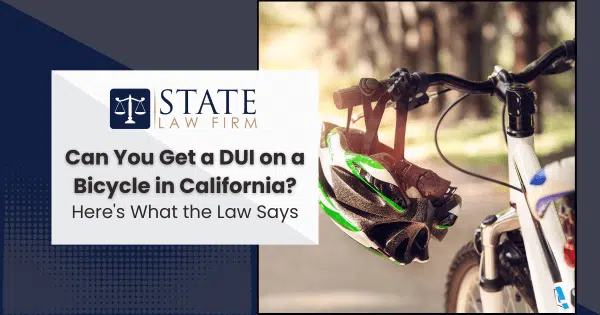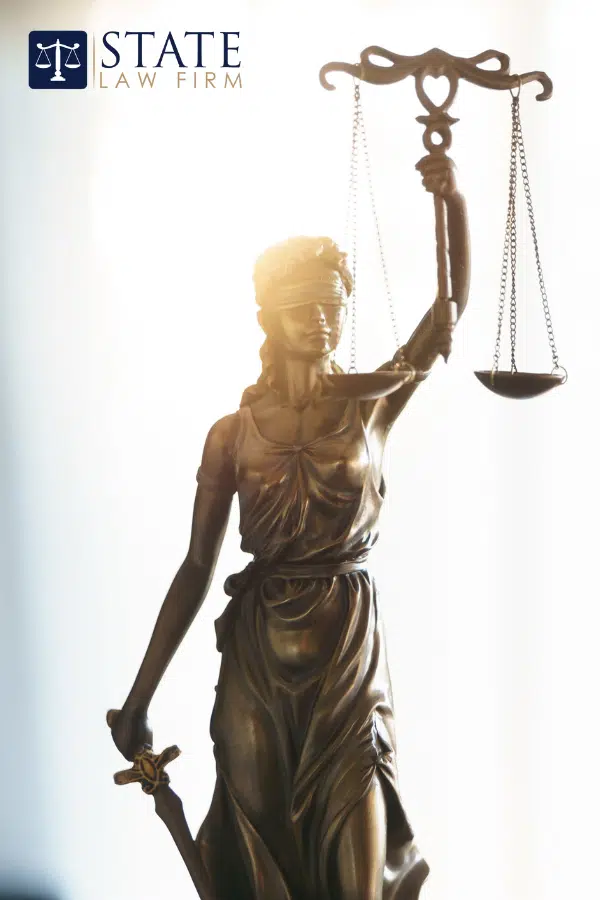Riding a bike home after a night out can feel like the safer choice. In California, however, cycling while impaired is a crime with real consequences. The state has a specific offense for bicyclists that sits alongside the traditional DUI laws that apply to motor vehicles.
Below, we break down what the law covers, where it applies, what to expect in a stop, and practical steps to stay safe and out of trouble.
DUI vs. “Cycling Under the Influence” in California
California’s standard DUI rules target people who drive motor vehicles while impaired or over the legal blood alcohol concentration. Bicycles are handled differently. The state created a separate offense for operating a bicycle while impaired, often called cycling under the influence or CUI.
Key points to understand:
- Different law, different elements. Traditional DUI statutes focus on motor vehicles and use per se blood alcohol thresholds in several scenarios. Cycling under the influence is a standalone misdemeanor for riding a bicycle while impaired by alcohol, drugs, or a combination of both.
- No fixed BAC number for cyclists. There is no automatic “over the limit” number for a bicycle case. Investigations focus on signs of impairment such as balance, coordination, speech, and compliance with traffic rules.
- Scope of the law. CUI applies when a person rides a bicycle on public roads. Private driveways and strictly private property are generally outside its scope.
- E-bikes count if they are legally treated as bicycles. Most Class 1, 2, and 3 e-bikes with operable pedals and motors under 750 watts are treated as bicycles under California law. If you ride one while impaired on public roads, the same cycling-under-the-influence rules can apply.
When and Where the Bicycle Law Applies
Understanding the geography of the statute matters.
- Public roads are covered. California uses the term “highway” to refer to public streets and roads. Riding on these while impaired is what triggers the bicycle offense.
- Paths and private property. The bicycle offense is aimed at public ways. If an incident happens entirely on private property not open to the public, the cycling-under-the-influence statute typically does not apply. Other laws could still be implicated depending on the conduct.
- Rights and duties. When you ride a bicycle on public roads, you generally have the same rights and responsibilities as a driver. That includes stopping at signals and signs, yielding when required, and using proper lighting at night. Those baseline rules apply whether or not alcohol is involved and are often part of what an officer observes during a stop.
Practical takeaway: If you are using a public street or lane, expect bicycle-specific impairment rules to apply even though you are not in a car.
What Happens If You Are Stopped for Suspected Cycling Under the Influence
An encounter usually unfolds in predictable stages. Knowing what to expect helps you make safer, more informed choices.
During the stop
- Pull over safely and stay visible. Signal, move to a safe spot, and put the bike on its kickstand or lay it down away from traffic.
- Be courteous and keep movements slow. Officers evaluate balance, coordination, and demeanor. Sudden movements can be misinterpreted.
- Identification and basic information. You can expect questions about your ride, destination, and whether you have consumed alcohol or drugs.
Field evaluations and tests
- Field sobriety exercises. Officers commonly use eye-tracking, balance, and coordination tasks. These observations often carry significant weight in a bicycle case.
- Breath or blood testing is different for cyclists. California’s “implied consent” statute is written for motor vehicle drivers. In bicycle cases, chemical testing is typically not mandatory. Officers may ask for a breath or blood sample, and you may decline. Refusing a voluntary test does not automatically trigger a separate license penalty for adults the way it can in a car DUI. An arrest can still occur based on the officer’s observations.
After the stop
- Citation or arrest. Cycling under the influence is a misdemeanor. Many encounters end in a citation and release, but an arrest is possible.
- Document the details. As soon as practicable, write down the route, weather, clothing, lighting, any medical issues, and names of any witnesses. Small details often matter later.
If you are under 21
- California imposes special driver-license consequences on people ages 13 to 20 when alcohol is involved, even when the incident is on a bicycle. A conviction for operating a bicycle while impaired can lead to a suspension or delay in the ability to obtain a driver license.
If someone is hurt
- Impairment cases can intersect with civil liability and insurance in a crash. If you were injured by a motorist or a third party, preserve your evidence and seek legal guidance promptly to protect your rights.
Penalties and Real-World Consequences
Cycling under the influence carries penalties that are lighter than a car DUI, but it is still a criminal offense.
- Classification and fines. It is a misdemeanor punishable by a fine of up to 250 dollars. Courts may add standard assessments and fees.
- Jail exposure. Jail time is not part of the statutory penalty for this bicycle offense. The typical outcome involves a fine rather than custody.
- Criminal record. Because it is a misdemeanor, a conviction appears on a criminal background check. That can matter for employment, licensing, and housing applications.
- Driver’s license impact for adults. A bicycle conviction does not automatically suspend an adult rider’s driver’s license. That is a major difference from a car DUI. Under-21 riders face separate licensing consequences.
- Related charges. In serious situations, officers sometimes consider public intoxication or other conduct-based charges if a rider’s condition creates safety hazards for themselves or others. Those are separate offenses with very different elements and penalties.
Actionable Safety Guidance to Avoid Legal Trouble
If you plan ahead, you can enjoy your night and avoid a legal mess.
- Choose a sober option before you head out. Rideshare, a sober friend, or public transit are the best choices. Many bike shops and bars will let you lock a bike overnight. A small retrieval fee beats a criminal case.
- Know your route and lighting. Impairment cases often start with a basic traffic observation, like riding without lights at night, weaving, or rolling a stop. Good lighting and reflective gear reduce both risk and police attention.
- Do not assume walking shields you from liability. Public intoxication focuses on whether you can care for your safety or whether you obstruct public ways. If you are impaired, stay with a sober person, use rideshare, or wait it out in a safe, legal place.
- If there is a crash, preserve evidence early. Photograph the scene, your bike, the other vehicle, and your injuries. Save your helmet and clothing. Get the driver’s insurance and the names of witnesses. Seek medical care and follow up.
- Talk to a lawyer before you talk to insurers. If a motorist hit you, insurers will move quickly to lock down statements. Get legal advice first so you do not accidentally undercut your claim. https://statelawfirm.com/car-accident-lawyers/san-jose/
Quick FAQs
Can an officer make a bicycle arrest without a breath test result?
Yes. Because there is no fixed BAC threshold for bicycles, the state can rely on observations, riding pattern, admissions, and voluntary tests.
Does a bicycle offense count like a prior DUI in a future car case?
The bicycle statute is a separate offense from the motor-vehicle DUI laws. Prosecutors still consider your overall record, but cycling under the influence is not the same offense as a DUI in a car.
Do the rules apply to e-bikes?
If your e-bike meets California’s legal definition of an electric bicycle, most traffic rules for bicycles apply, including the cycling-under-the-influence prohibition on public roads.
California draws a clear line. Riding a bicycle while impaired is a misdemeanor that focuses on safety and conduct on public roads. You will not face the same jail or automatic license suspension consequences that attach to a car DUI, but a conviction still leaves a criminal record and can complicate your life. Plan ahead, choose a sober way home, and if an incident occurs, protect your rights and get informed advice.


